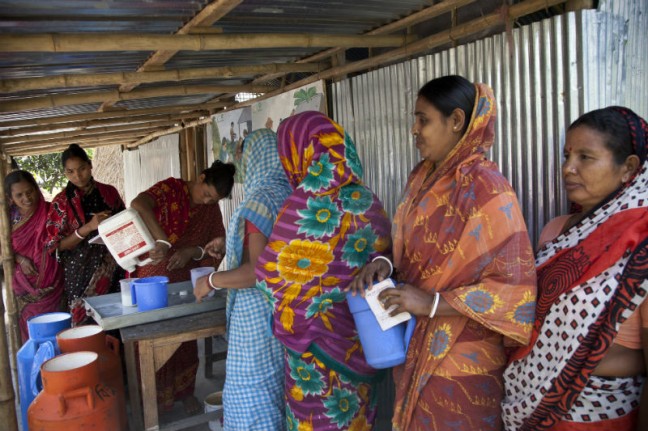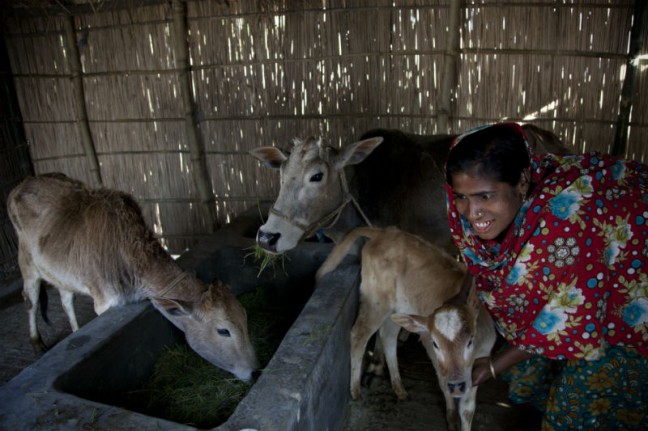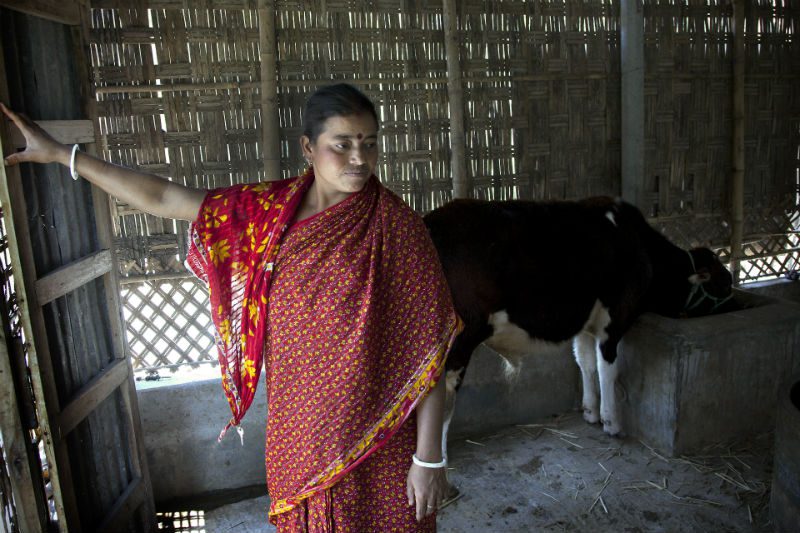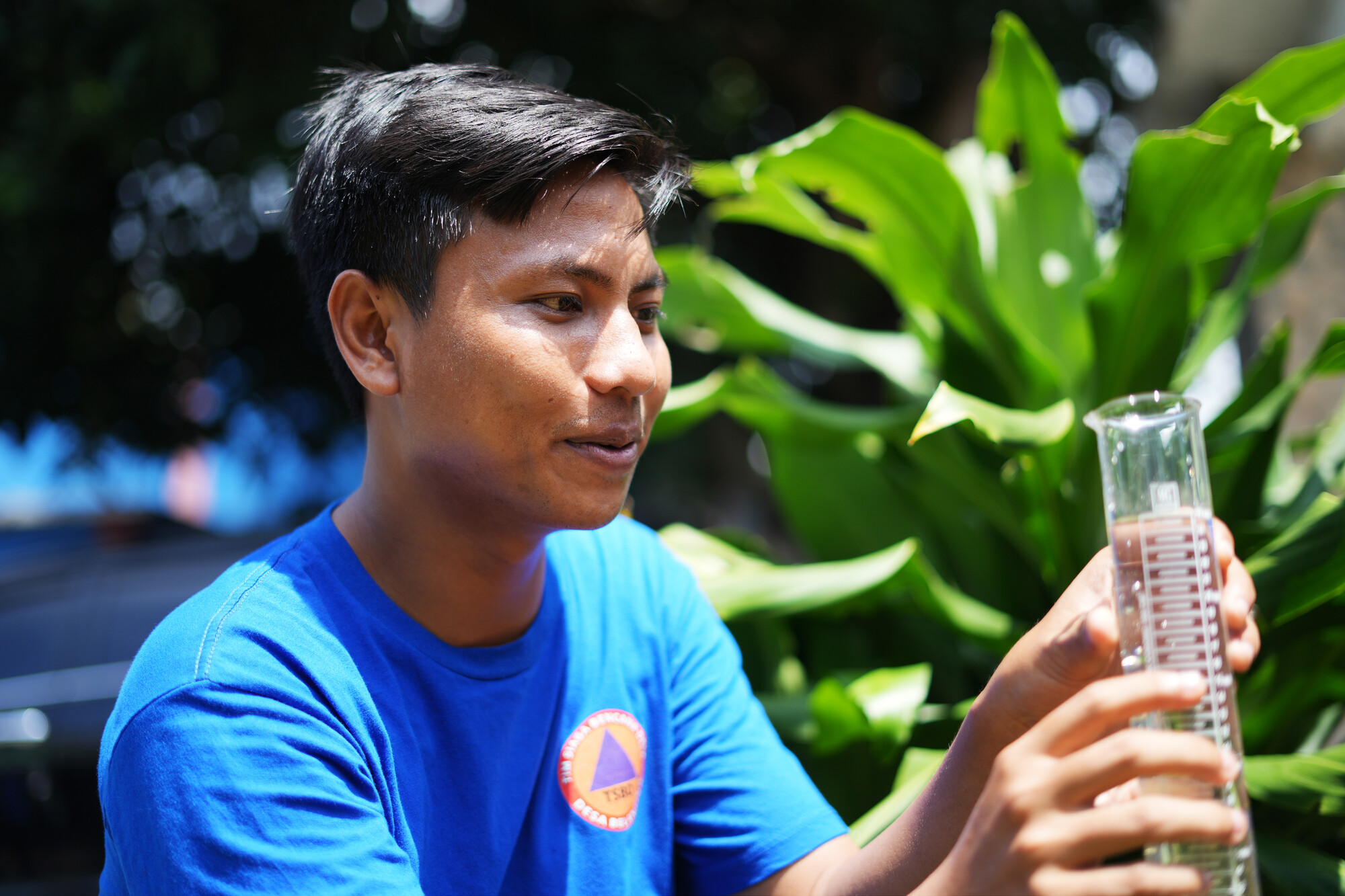In Panjar Bhanga village, near Rangpur in northern Bangladesh, women are kept at home by the traditions of their society. They are not recognised as wage earners, or people who can contribute to and manage their household income. Three years ago, Oxfam and it’s partner Social Equality for Effective Development (SEED), sat down with the local community and asked the people how to solve the challenges they face. Milk was the answer.
One woman, Renu Bala, was at the forefront of the decision to focus on producing milk in her community. She’s now been elected the head of the producer group—a milk collective to share knowledge and resources and to pool their milk to sell in bulk.
“We collect all the milk together and sell it to Rangpur Dairy or a local market. Even at the market we still sell it at a high price. We earn a lot of money – we couldn’t have made that money if we sold that milk independently. Now when we all sell it together we earn a lot more than we did before.

In the community, women have always raised cows, but the milk produced didn’t earn them a viable income. They’ve since gained access to the knowledge to produce milk of a high quality.
“Oxfam gave me the training on how to take care of our cows, how to give them a nutritious diet. If you feed them this grass, the cow is healthier, and the milk has a high fat content. That’s what Oxfam taught us. That’s why I cultivate this grass and feed my cows with it every day so that my cows remain healthy and strong.
With this increased income, women are buying more nutritious food for their families, paying for their children’s education and strengthening their homes.

What’s more, the status of women in the community has been transformed – nearly every women we spoke to said they felt more confident now they are contributing equally to their household income.
“I’m an empowered woman now. I’m better than before. I have everything. I have cows, goats, ducks, chickens and a sturdy cattle shed. My house is elevated. Flood doesn’t affect it. I am much happier than before. I can send my son to a good school. I can provide him tuition twice a day. I can eat properly. That’s why I’m happy. That is why I thank Oxfam a lot.”
When you’re working to stamp out poverty, gender matters. Investing in women is a long-term solution to poverty.



